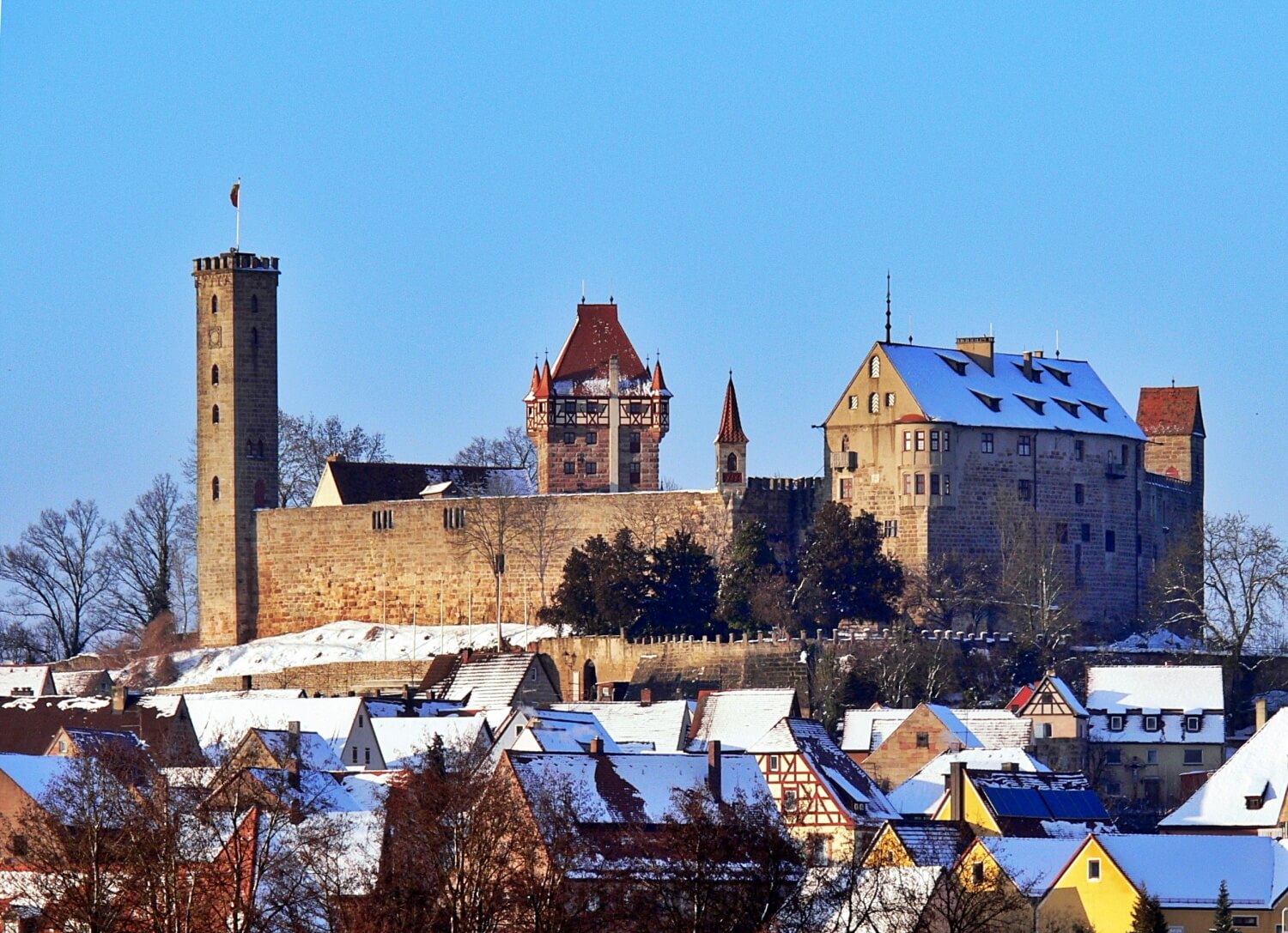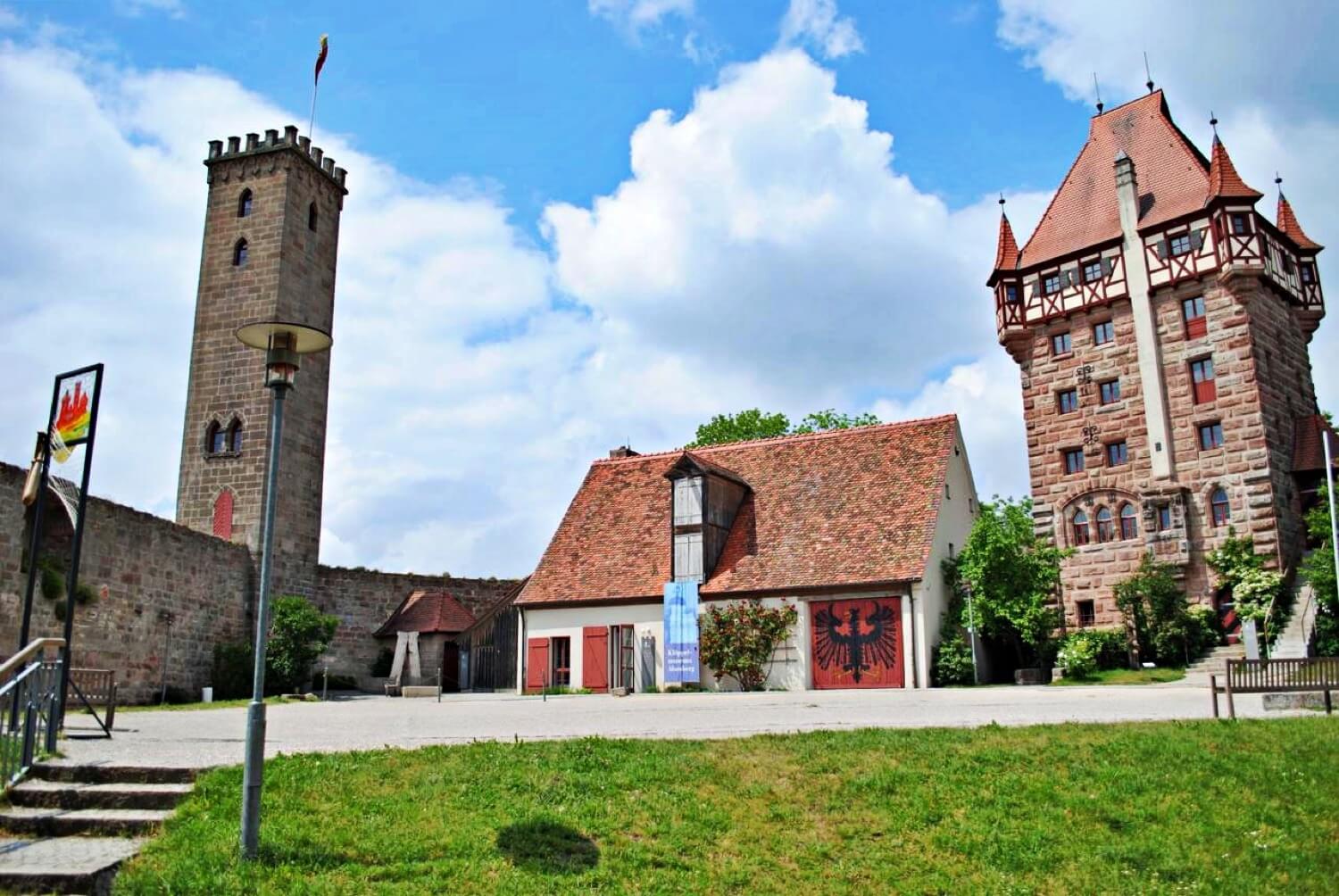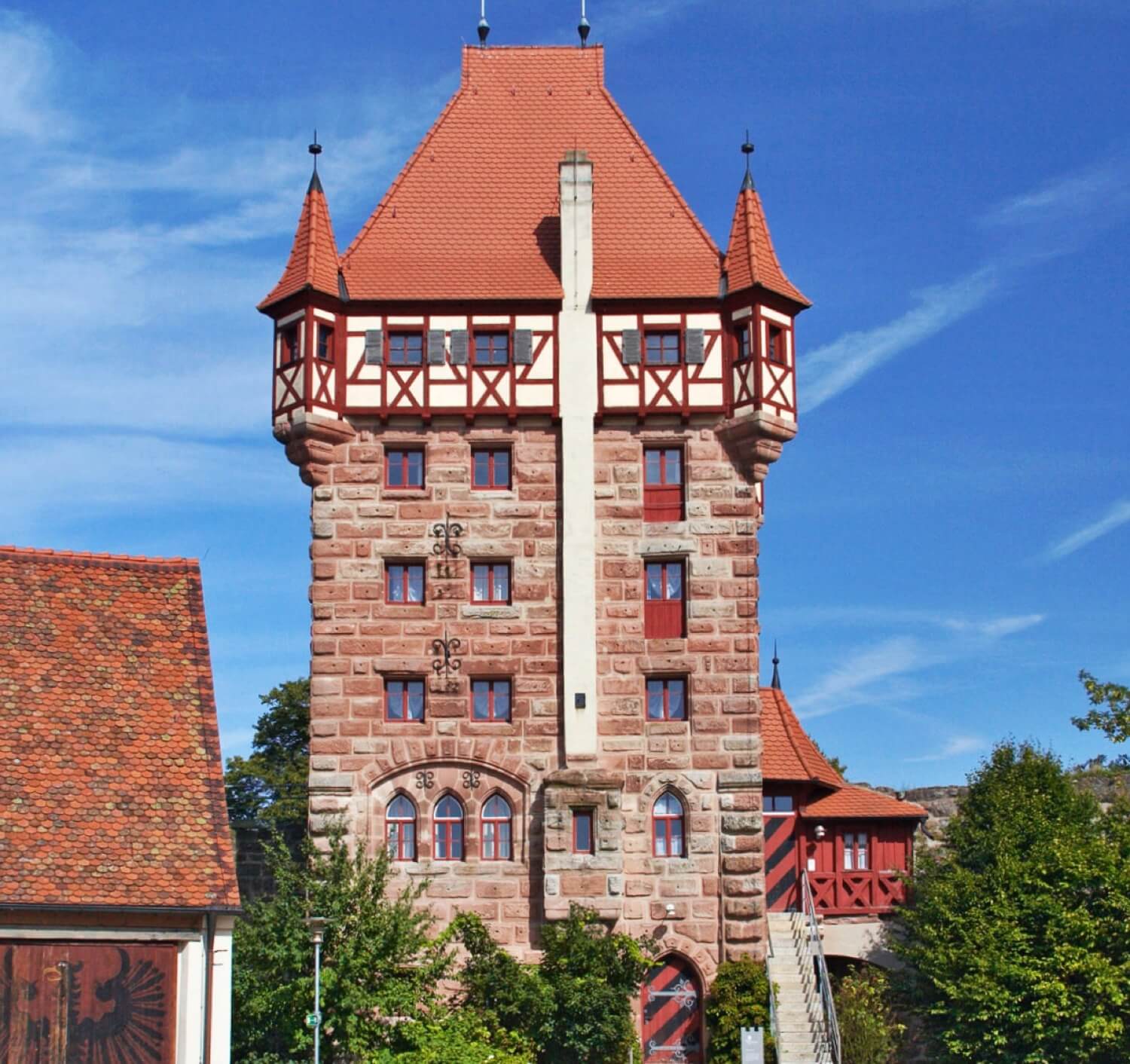Burg Abenberg
Mittelfranken Bayern Germany
castle, chateau
Burg Abenberg
Mittelfranken Bayern Germany
castle, chateau
Abenberg had its origins in the 11th century when Count Adalbert II built a wooden castle on the site
Die Burg Abenberg steht über dem gleichnamigen mittelfränkischen Städtchen Abenberg im bayerischen Landkreis Roth
Previous names
Burg Abenberg, Burg Abenberg
Description
Abenberg had its origins in the 11th century when Count Adalbert II built a wooden castle on the site. A hundred years later a stone castle replaced it and this new structure became the seat of the powerful counts of Abenberg.
The Abenbergs soon died out and the Hohenzollerns of Nuremberg inherited the castle. Even though they rarely stayed there, they doubled its size and added some defensive structures. The ring wall is now the oldest surviving feature of the castle.
In the early 19th century, the Kingdom of Bavaria acquired the property and slated it for destruction, but the castle won a reprieve in 1875 when a Munich art dealer bought it and began rebuilding. His work was continued by chamber singer Anton Schott, who rebuilt the Schottenturm (the main tower where many of the guest rooms are).
The castle fell into disrepair during the 20th century. Finally in 1984, the town of Abenberg took over the castle and along with the District of Central Franconia, they set out to preserve the integrity of the historic structure and carry out archaeological excavations on the site.
The hotel and restaurant help provide funds to continue this work.
http://castleandpalacehotels.com
Die Burg Abenberg steht über dem gleichnamigen mittelfränkischen Städtchen Abenberg im bayerischen Landkreis Roth. Die Höhenburg wird gelegentlich als die Krone des Rangaues bezeichnet.
Geschichte
Im 11. Jahrhundert tauchte das Geschlecht der Abenberger auf. Unter Graf Adalbert II. (vor 1040 bis nach 1059) wurde die erste Burg weitgehend aus Holz erbaut. Unter Graf Rapoto (1122–1172) wurde sie zwischen 1130 und 1140 durch eine der imposantesten Steinburgen Bayerns (40 × 40 Meter) ersetzt. Das Abenberger Adelsgeschlecht, dessen letzter Graf Friedrich II. noch im 13. Jahrhundert von Tannhäuser wegen seiner Förderung der Dichtkunst gelobt wurde, starb um 1200 aus.
1236 kamen Stadt und Burg durch Heirat an die Hohenzollern, die damaligen Burggrafen von Nürnberg (siehe auch Konrad IV.), nachdem die männliche Linie der Abenberger mit Graf Friedrich II. erloschen war. 1230–1250 ersetzten die Nürnberger den salierzeitlichen Bau durch einen teilweisen Neubau, den sie aber kaum benutzten. Dazu wurde die Ringmauer abgebrochen und die Hauptburg auf die doppelte Größe erweitert. Die Frontseite wurde verdickt und am Südosteck das wehrhafte Burgtor errichtet. Die damals errichtete Ringmauer ist der älteste erhaltene Teil der Burg.
1296 wurde die Burg an das Fürstbistum Eichstätt verkauft, das dort ein Pflegamt einrichtete und das schwachbefestigte Nordwesteck durch einen Viereckturm verstärkte.
Im 15., 16. und 17. Jahrhundert erfolgte eine Reihe von Umbauarbeiten. So wurde ab 1496 die Ostfront mit neuen Pflegerbauten versehen. Im Burginneren entstanden neue Wirtschaftsbauten. In der Folgezeit verfiel die Burg. 1799 stürzte die St.-Otmars-Kapelle ein.
1806 kam durch die Säkularisation das Königreich Bayern in den Besitz der Burg und verkaufte diese zum Abbruch an Max Freiherr von Welden. Erst 1875 erwarb der Münchener Kunsthändler K. J. Zwerschina Burg Abenberg und rettete die Burg vor der totalen Zerstörung. Einige Türme, wie den 33 Meter hohen Luginsland, baute er wieder auf. Der nächste Besitzer, der Kammersänger Anton Schott führte das Werk Zwerschinas zwischen 1881 und 1913 fort. Danach jedoch verfiel die Burg erneut.
Die Stadt Abenberg erwarb 1982 zunächst eine Hälfte der Burg und 1984 den Rest. Um Sanierung und Unterhalt finanzieren zu können, gründete sie am 8. März 1986 zusammen mit dem Landkreis Roth und dem Bezirk Mittelfranken den Zweckverband Burg Abenberg, der die Burg als Eigentümer übernahm. Das Ziel war, das Baudenkmal zu erhalten und kulturell zu beleben. Es wurde ein Betriebskonzept in Form eines Museums und eines Gastronomiebetriebs erarbeitet.
Im gleichen Jahr begannen umfangreiche Sanierungsarbeiten, die bis Mitte der 1990er Jahre dauerten und denen sich weitere Aus- und Umbauarbeiten anschlossen, die 2001 mit der Eröffnung des Klöppelmuseums ihren Abschluss fanden. Während der Arbeiten fanden 1988 bis 1992 Ausgrabungen statt, die Auskunft über die baugeschichtlichen Stufen gaben.
Heute
Die Burg beherbergt ein Restaurant, das Burghotel, ein Tagungszentrum sowie das Haus fränkischer Geschichte und das Klöppelmuseum Abenberg.
Jedes Jahr finden im Sommer im Rahmen des Burg Abenberg Open Airs diverse Konzerte und das Feuertanz-Festival auf dem Burggelände statt.
Useful information
Gratis
2.00 EUR
- Informationstafeln
- WC
- Privateigentum (Hotel und Restaurant)
- Es hat ein Museum
- Führungen nach Vereinbarung
-
External links
Nearby castles
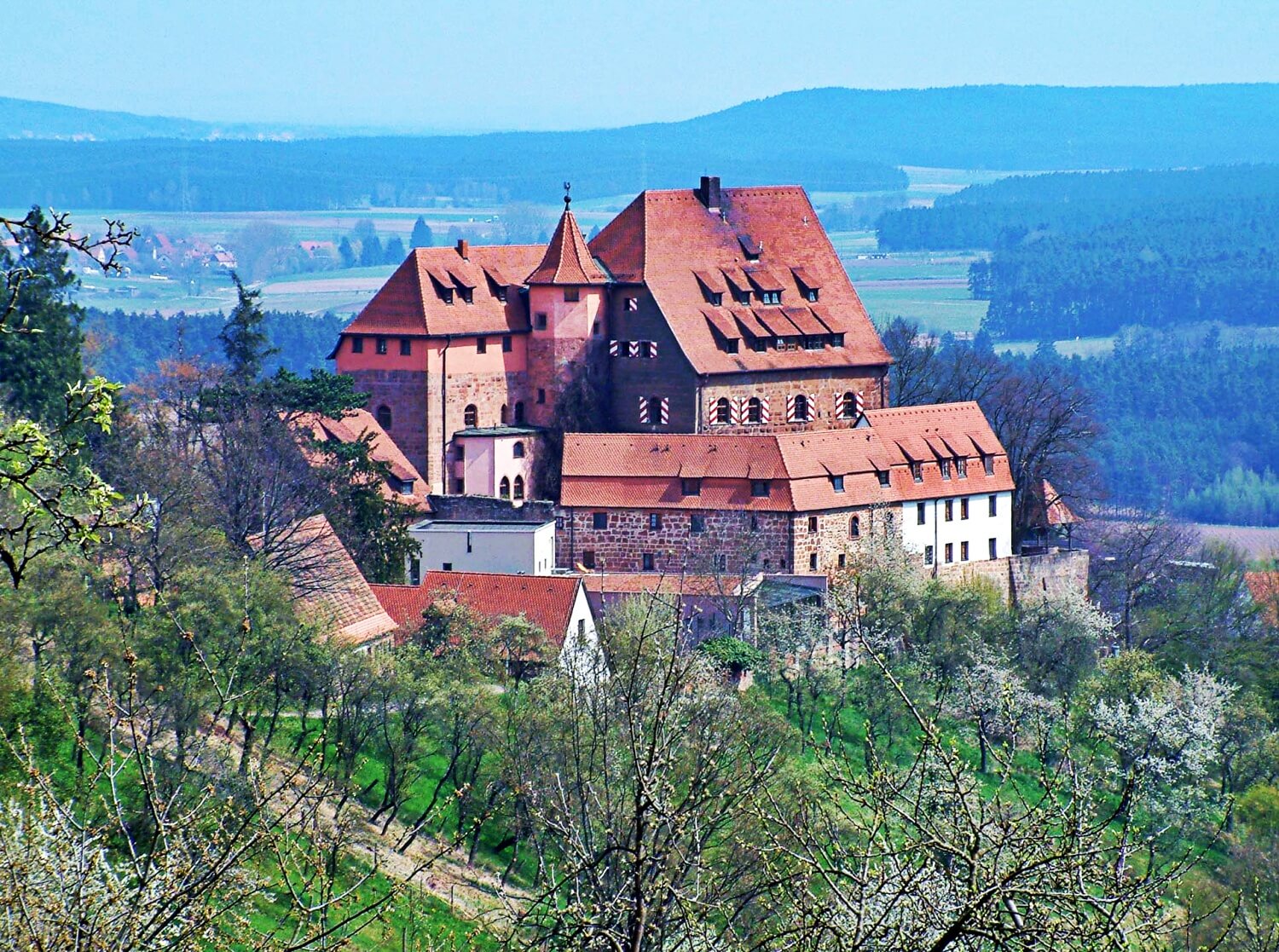
Burg Wernfels
Mittelfranken
7.9km
castle, chateau
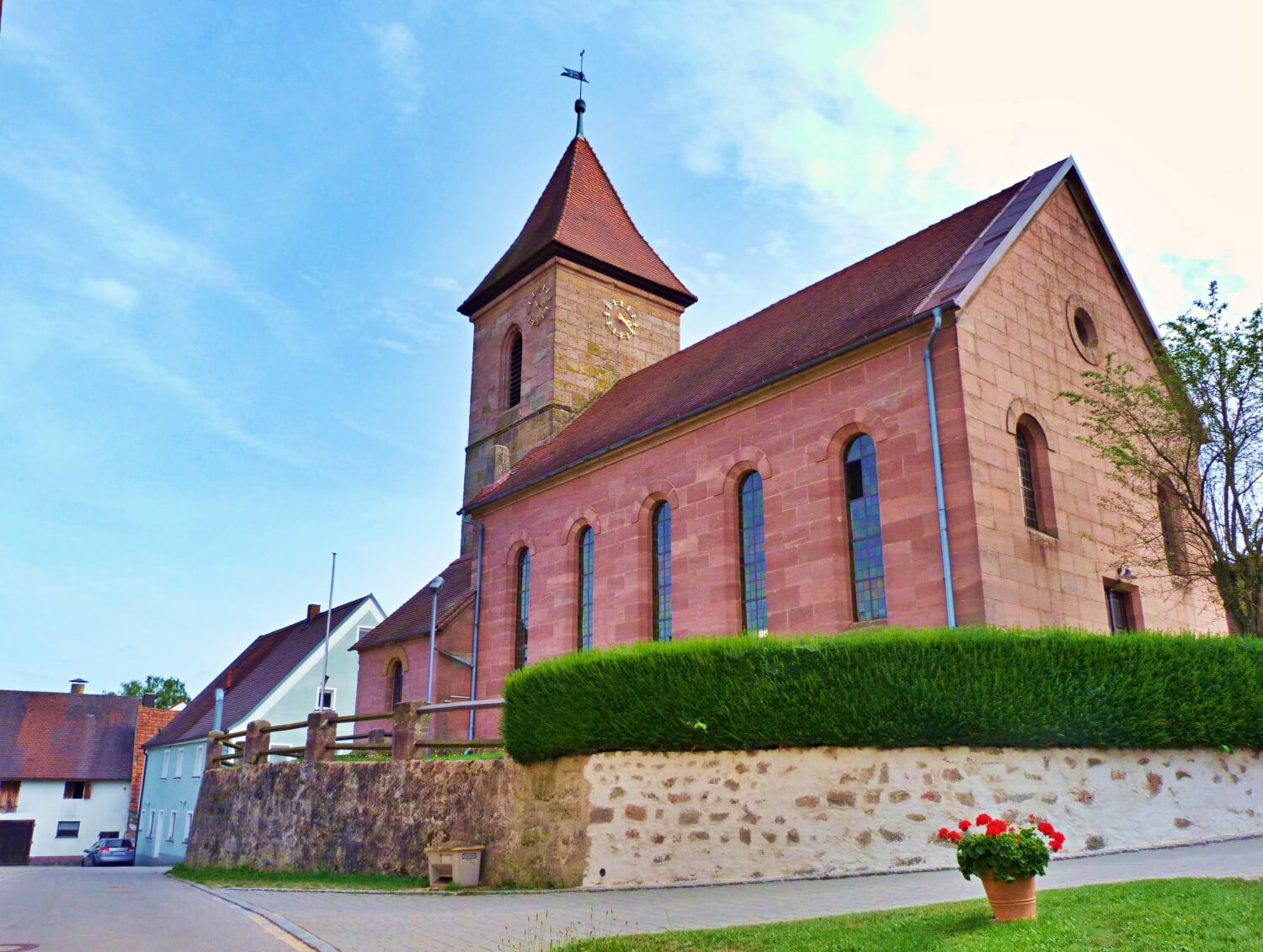
Burg Bertholdsdorf
Mittelfranken
8.2km
castle, chateau
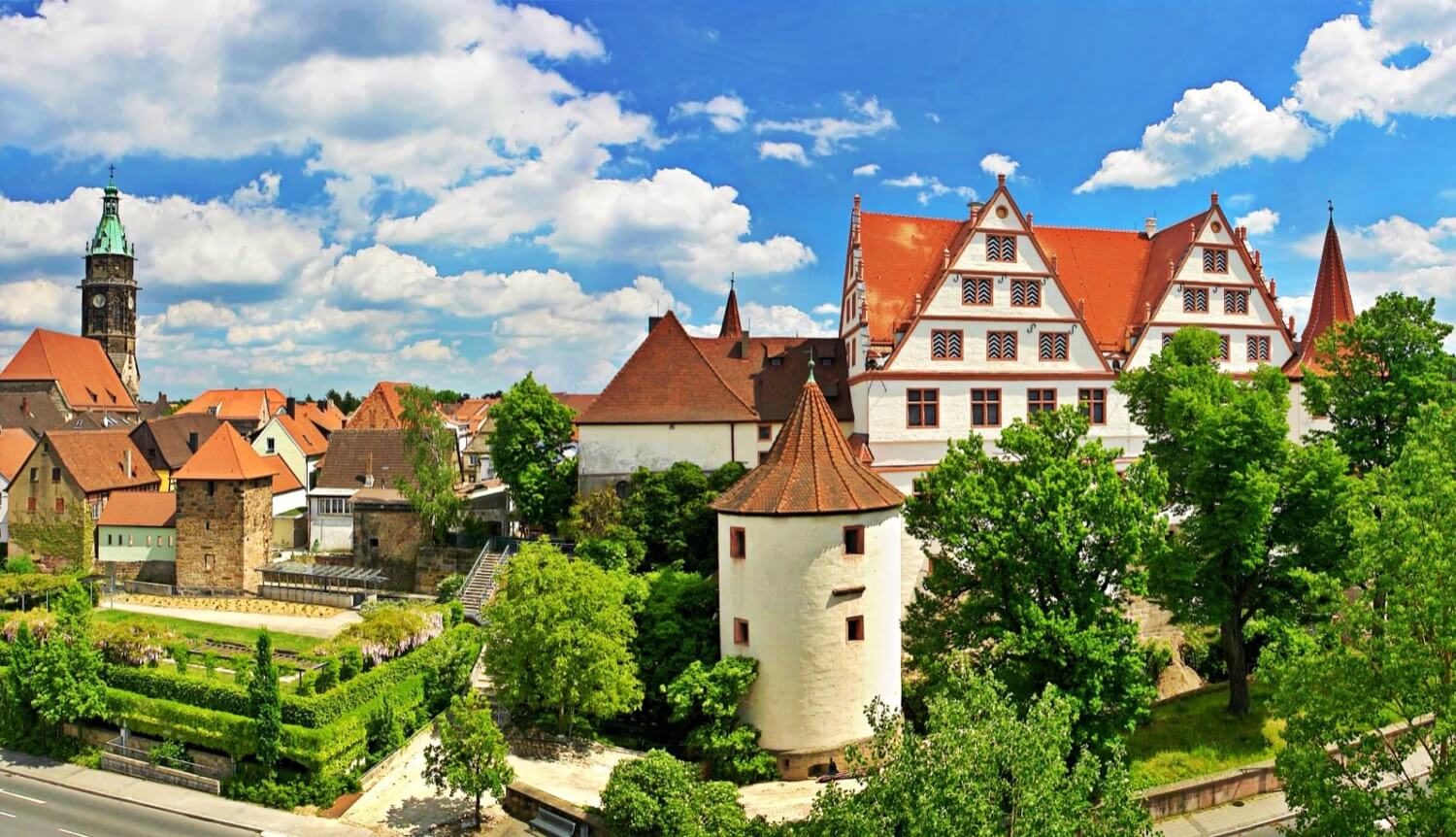
Schloss Ratibor
Mittelfranken
9.2km
castle, chateau
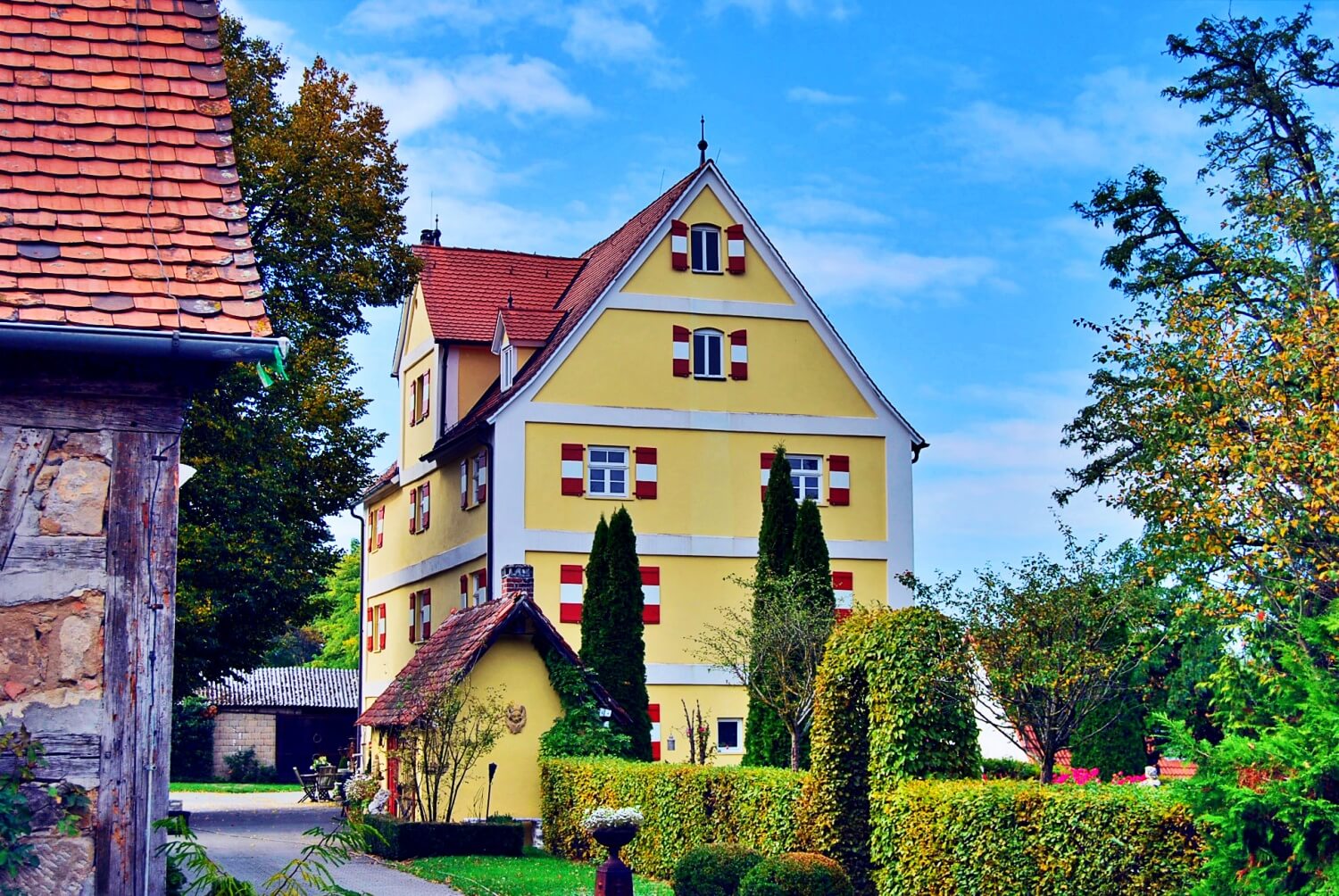
Schloss Sorg
Mittelfranken
16.5km
castle, chateau
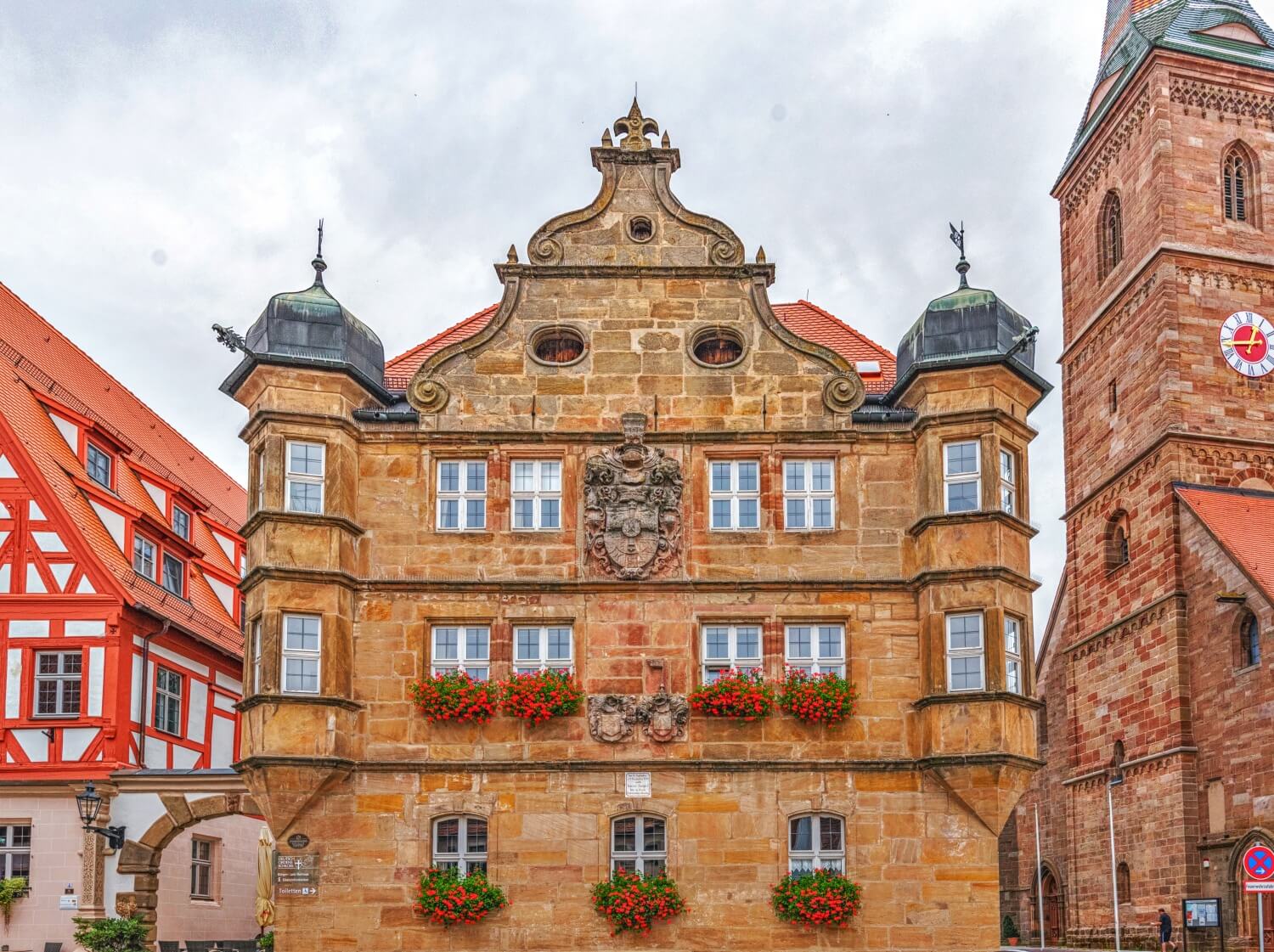
Schloss Wolframs-Eschenbach
Mittelfranken
17.3km
castle, chateau
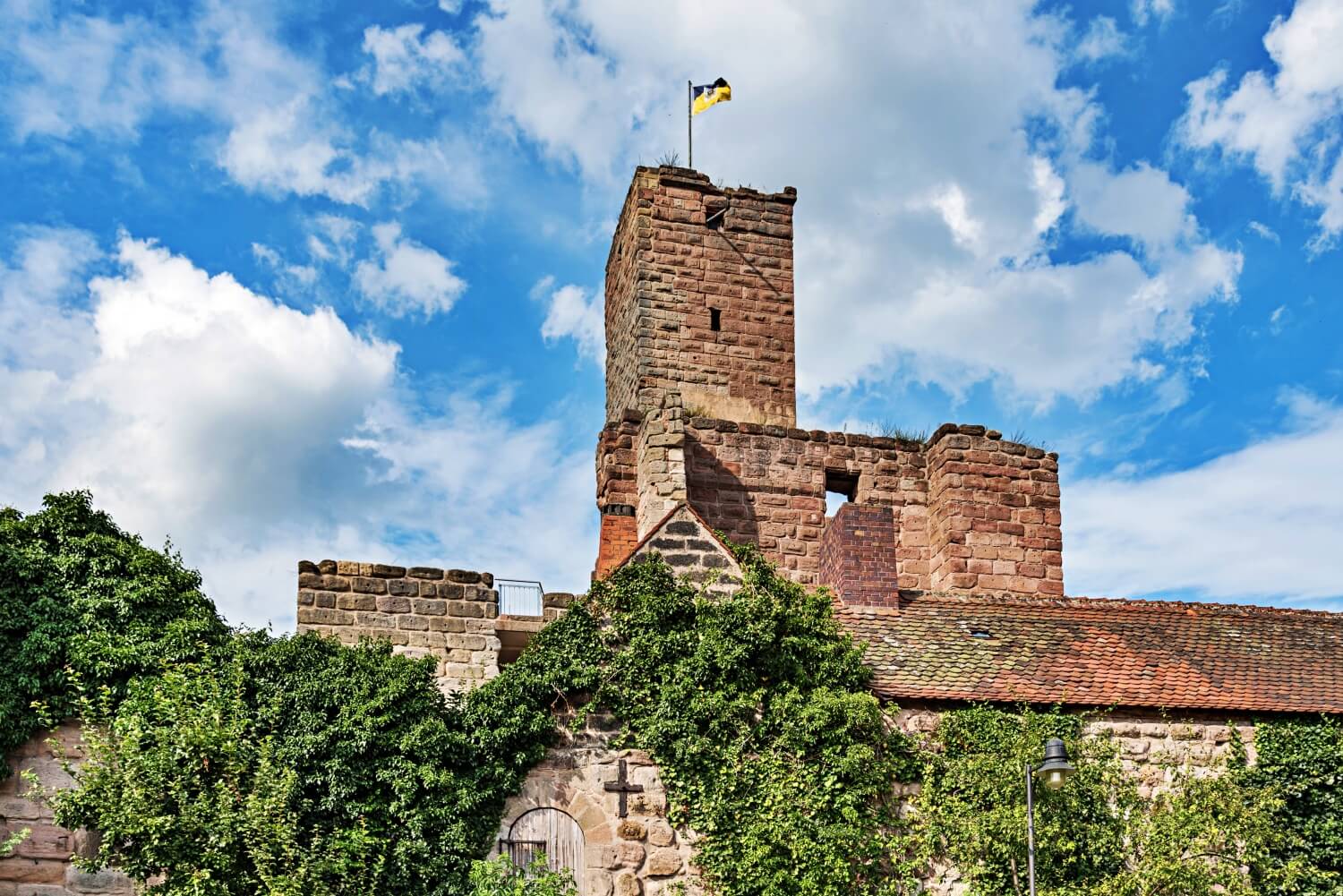
Burgruine Hilpoltstein
Mittelfranken
17.8km
castle, chateau
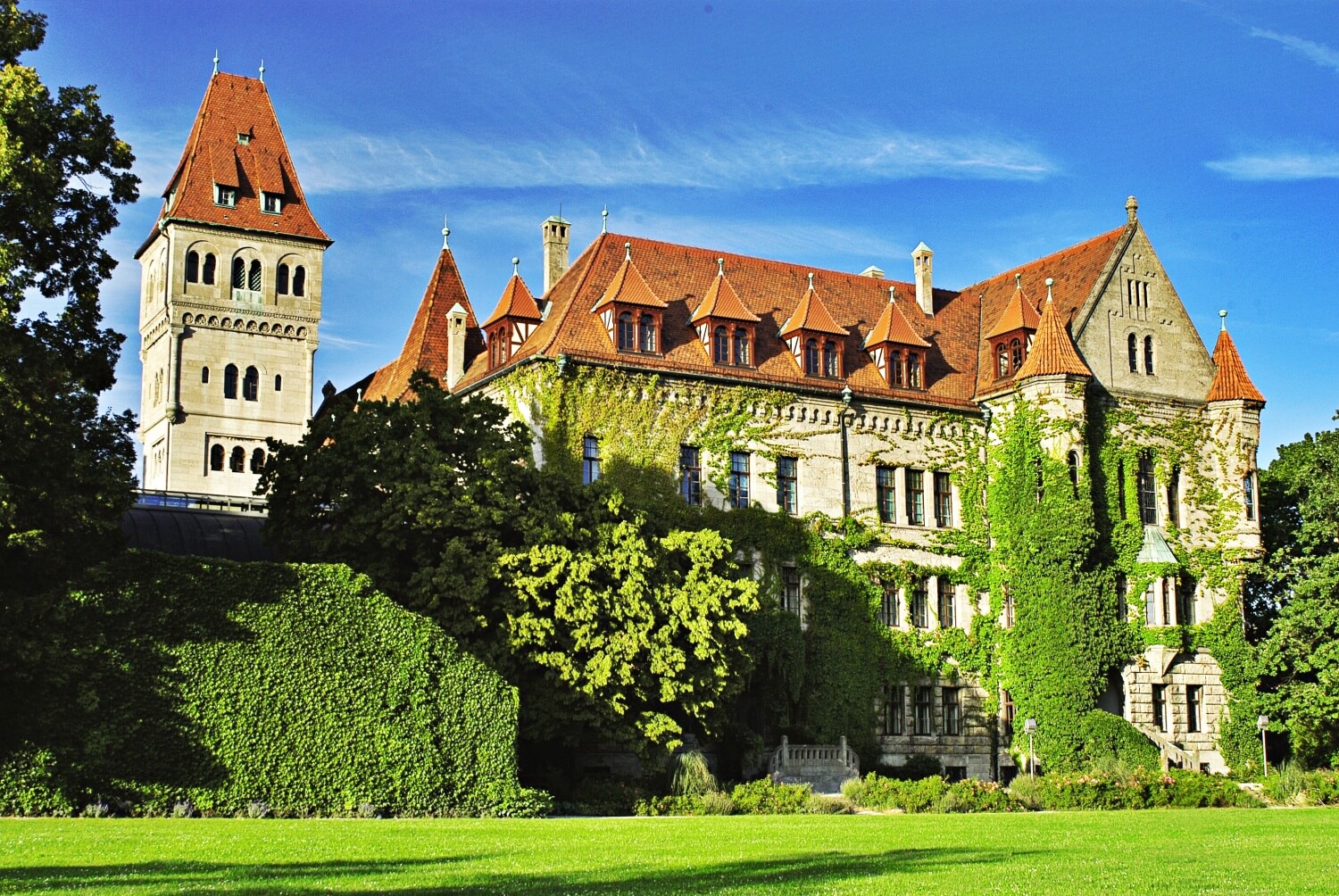
Faberschloss
Mittelfranken
19.8km
castle, chateau
